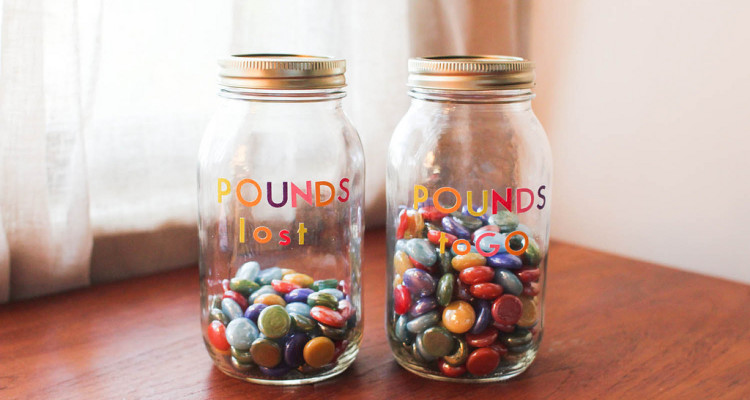For a subject that is, at face value, as simple as “calories in, calories out,” weight loss is a surprisingly complicated, nuanced subject, one that has sparked thousands of plans, strategies, books, and products out there. As you know, different approaches work for different people—your sister-in-law swears by paleo, while your best friend lost weight as a vegan. What’s going on here? The answer is twofold: all of our bodies lose weight differently, and our relationship with food isn’t just physical—it has emotional, psychological, and evolutionary components as well.
We checked in with Kusha Karvandi, CSCS, co-creator of Exerscribe for some weight loss strategies that approach weight loss from this angle—an understanding that we need to generate focus and find ways to create new patterns that will help you stay on track to achieve your goals.
“It’s important to understand that our natural human state is hunger and that our current environment is our greatest enemy,” Kusha says, referring to all of the temptations of a typical American diet: easy access to high-calorie foods, massive portion sizes, and kitchens permanently stocked with multiple jars of Nutella in various stages of being eaten (what—yours isn’t?).
“My clients often come to me seeking weight loss strategies for increased willpower, but instead I teach them that they don’t lack the will, they lack the specific skills,” he explains.
Kusha offers some of skill-building diet strategies to help you change not just your eating habits, but your perception of how and why you eat:
1. Shrink Your Danger Window
It’s easy to try to change your daily routines and habits, but that hardly ever works. Instead, focus on the one hour window during the day that needs the most attention. For example, one client of mine found that if she drank coffee in the morning she made worse food decisions all day long, so her one goal initially was to skip the coffee. She lost 10 pounds in four weeks as a result of that one habit shift.
2. Give Yourself Permission to Do Less
Again, diet change doesn’t have to be an overhaul. If you want to make a change, you need to focus on incremental progress. For example, if you like to eat an entire pint of ice cream every night, set your initial goal to leave a quarter cup of ice cream in the carton each night (meaning eat everything except a quarter cup), then aim for half a cup each night next week, then ¾ of a cup, etc. We tend to highly underestimate what we can accomplish over a longer period of time, and these [Tweet “seemingly small changes can yield drastic results that you can easily keep.”]
3. Be Aware of Your Environment
It’s interesting that every diet can help you lose weight, but few actually teach you how to maintain your weight and healthy appetite control. This is because most diet programs focus on teaching you to look within when really you should be looking at your environment. Most of our daily habits are routine and unconscious, triggered by environmental cues – whether it be watching your favorite show in your living room and getting that craving for the sweets in your cupboard or going to the movies and feeling the overwhelming urge to buy a large bucket of popcorn. It’s not that we are weak, it’s that we’re blind. Recognize the things that trigger your emotional eating and make the necessary changes to your environment. For example, change where you watch TV to make it more tedious for yourself to have to get up and walk to the kitchen.
4. Reminders, Reminders, Reminders
As previously mentioned, most of our food-related behaviors are unconscious. The evolutionary reason for this is that an unconscious action preserves energy in the brain – habitual patterns use less “battery power” than a conscious override. You need reminders to snap out of your zombie-like eating patterns. Try changing your passwords to something like Dr1nkM0reW@ter so that you’re constantly reminded throughout the day to drink more water (which can help satiate cravings).
Read on for more weight loss tips…
10 Reasons Why You’re Not Losing Weight

